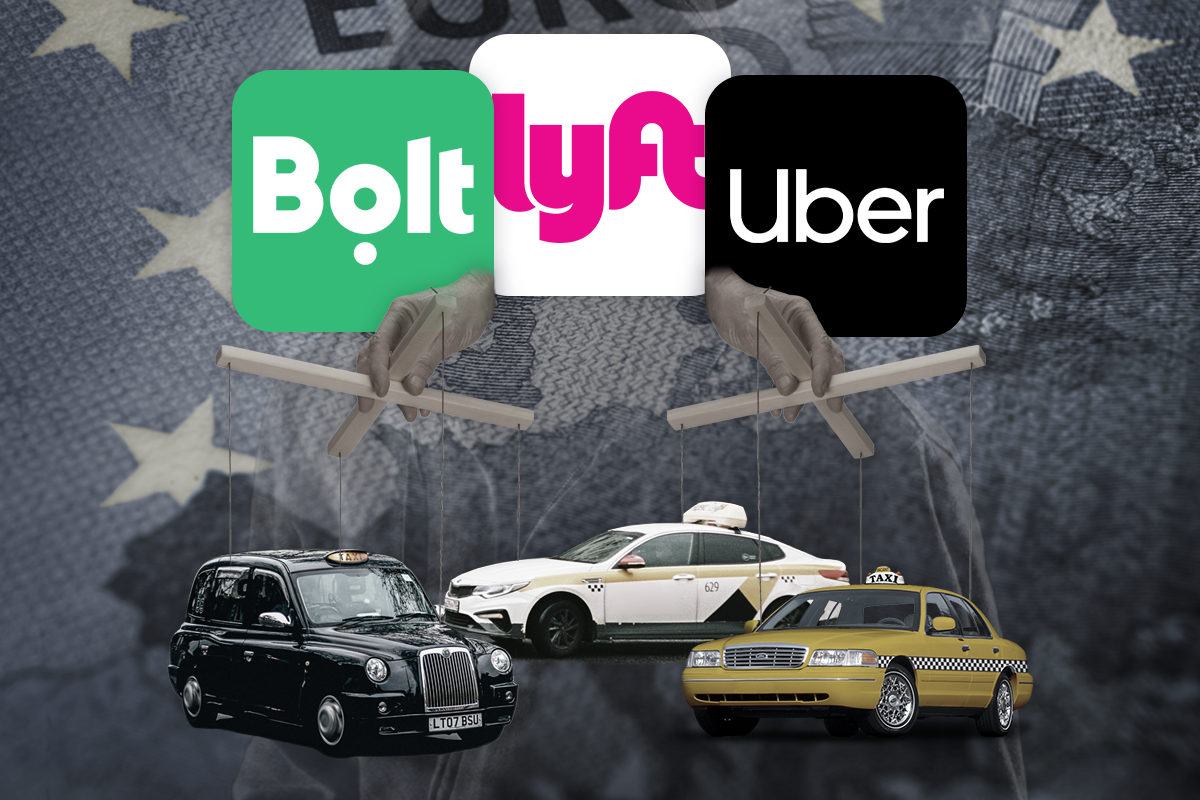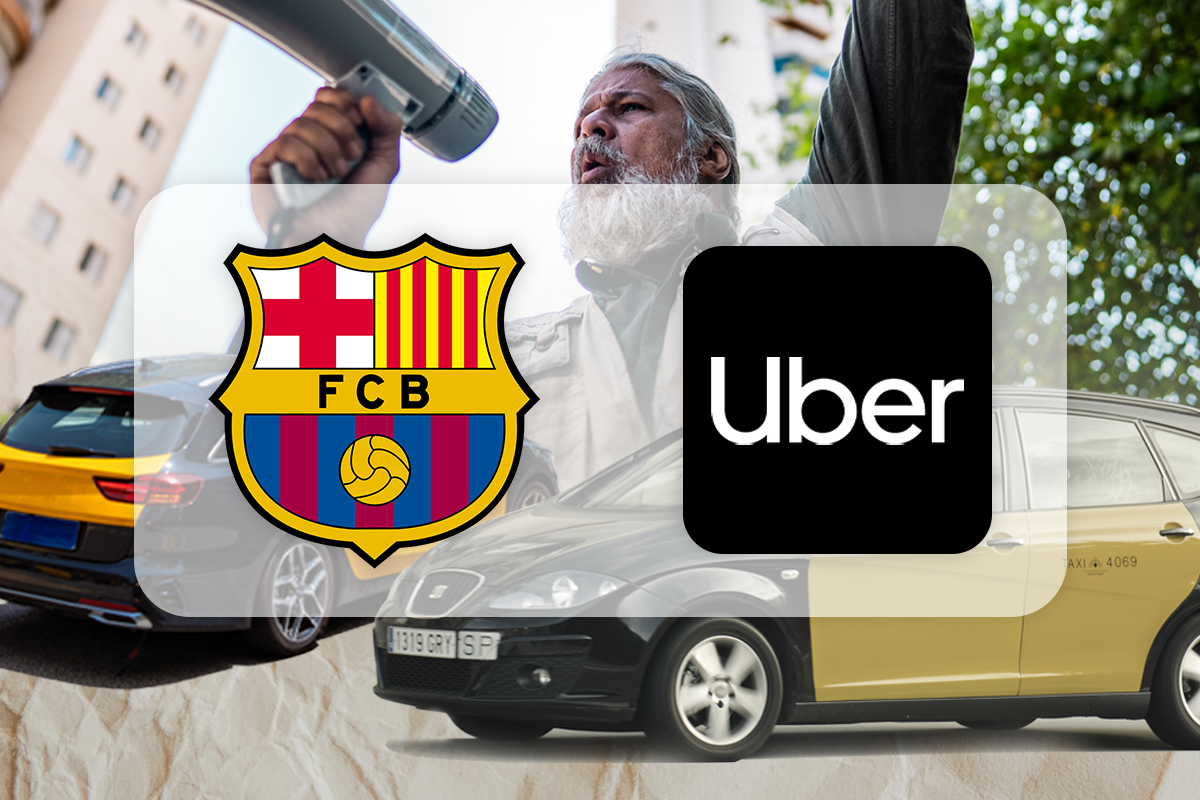
Divide & Conquer: Uber & Bolt Are Fragmenting the Taxi Industry
What looks like market competition is really a long game of fragmentation, and the platforms are winning.
Fresh from the European Radio Taxi Association (ERTA) annual gathering in Amsterdam, one thing is painfully clear: Europe’s taxi and Private Hire Vehicle (PHV) sectors remain fragmented, and that fragmentation is no accident. Uber and Bolt are not merely competitors; they are tacticians, deploying a well-worn strategy of “divide & conquer” to cement their dominance across the continent.
What surfaced repeatedly at ERTA (though rarely addressed with urgency) is that the industry’s greatest threat isn’t just technological. It’s structural disunity, amplified by generational shifts, internal mistrust, and a chronic absence of coordinated strategy.
A Calculated Wedge Between Taxis and PHVs
In city after city, Uber and Bolt are exploiting regulatory ambiguity to turn legacy operators against each other. Taxis, bound by stricter rules and historic service standards, watch as PHV operators are lured in by platform incentives and lower compliance costs. PHVs, in turn, often resent being painted as the enemy while trying to survive in a highly competitive landscape.
This misalignment – carefully fueled by selective partnerships, predatory pricing, and political lobbying – prevents the emergence of a unified bloc capable of negotiating fair rules, sustainable margins, or digital independence.
Munich: Division in Real Time
A striking example of this dynamic is playing out in Munich, where Taxi München eG, once one of Europe’s most powerful taxi cooperatives, is fracturing under internal pressure. As Taxi Times reported, the organisation is struggling with existential questions about direction, identity, and cooperation with platforms.
While operators argue over whether to embrace or resist the Uber/Bolt model, the platforms quietly expand their grip on both demand and supply. This is “divide & conquer” in real time, in one of Europe’s wealthiest cities.
Platform Co-Opting: Taxis on the Uber/Bolt Grid
Perhaps the cleverest part of this strategy? Uber and Bolt no longer simply compete with taxis, they co-opt them. In nearly every European city, they are actively courting taxi operators to join their platforms, offering access to incremental demand, better in-app positioning, and the illusion of partnership.
This tactic has varying levels of success. In some markets, taxi drivers have joined in hopes of recovering lost volume. In others, traditionalists resist, unwilling to strengthen the very platform that disrupted them. Either way, the effect is the same: deeper fragmentation and less bargaining power.
The Generational Trojan Horse
Beneath structural fragmentation lies an even more dangerous cultural one. A growing divide between younger and older operators is not just about tech preference; it’s shaping the future political climate.
Younger drivers and fleet owners, raised in the app economy, tend to see Uber and Bolt as normal, if not essential. They value flexibility, simplicity, and access to demand. The older generation remembers an era of market control, regulated pricing, and brand loyalty.
This isn’t just an operational divide, it’s a lobbying problem.
The younger generation isn’t just behind the wheel – they’re entering policy circles, city councils, and transport ministries. They are digital natives, far more likely to favor business models born in the last 15 years – models Uber pioneered.
That generational affinity is Uber’s most effective lobbying strategy. And its long-term effects are already showing.
Behavior Change Is the Real Win
Uber isn’t just changing transport. It’s reshaping behavior.
As Uber CEO Dara Khosrowshahi recently acknowledged, fewer teenagers in the U.S. are even bothering to get a driver’s license. Why own a car, or even know how to drive, when mobility is always a tap away?
That’s not just disruption. That’s a cultural shift with regulatory consequences. Because future lawmakers and regulators aren’t just consumers of ride-hailing; they’re products of it.
If Europe’s taxi and PHV sector doesn’t act now to reclaim relevance, it risks being legislated out of existence by the very generation it failed to influence.
Fragmentation Enables Foreign Control
While local operators debate and fragment, something bigger is happening at the ownership level.
FreeNow, once Europe’s most promising homegrown ride-hailing contender, is now owned by Lyft, a U.S. tech giant. What could have served as a coordinated European alternative has instead become another vessel for American platform expansion. The same pattern is unfolding elsewhere: Uber has acquired Dantaxi, Denmark’s largest taxi company, while Bolt snapped up Viggo, a Danish green taxi startup, marking its first-ever acquisition.
These moves aren’t just market entries, they’re consolidations of power, absorbing local fleets and neutralising potential resistance from within.
This isn’t about sentiment. It’s about control: of data, of users, of margins, and of policy influence. Fragmentation among operators creates the vacuum, and the platforms are wasting no time filling it.
And all of this is happening in a market that’s growing at 10–15% per year.
Let that sink in.
From Fragmentation to Federation
And yet, not all is lost.
The ERTA meeting didn’t just expose vulnerabilities. It revealed latent strength: operational know-how, trusted networks, local insights. These are not relics… they are leverage.
The challenge now is turning fragmentation into federation. That means coordinated lobbying. A shared digital infrastructure. And most critically, a unified voice across generations, regions, and business models.
Munich is a warning, not a foregone conclusion.
Europe’s taxi and PHV operators don’t need to mimic Uber and Bolt, they need to outmaneuver them. With collective clarity, political strategy, and a modern product offering, the legacy industry can compete and win.
The industry is growing. The clock is ticking. And the next chapter of urban mobility is about to be written.
The only question is: who will hold the pen?
By Matthew Bezzina, eCabs Technologies’ CEO




